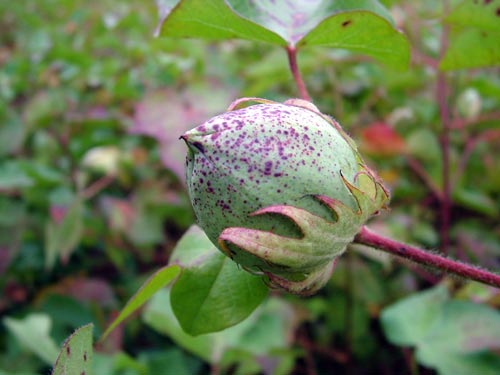April 8, 2011

Cotton producers across the Mid-South are busy making final preparations for the 2011 planting season, including making applications of fertilizer. The main focus in cotton fertility is often ensuring adequate nitrogen, and then if there is any money left in the fertilizer budget, fill in what the soil test recommendations call for.
Recent meetings with producers in Louisiana have revealed a surprising number of fields that are low enough in potash that it may be a yield-limiting factor.
Cotton requires a significant amount of potassium as it performs three main functions for the plant: it is essential for enzyme activation, assimilating and translocating energy related compounds and for regulating water.
It’s the role it plays in regulating water that can make such a big difference in yield at the end of the growing season. That is because potassium is the secret ingredient that allows plants to regulate how much water to take in and how fast.
Unlike nitrogen and phosphate, potassium does not get absorbed into plant compounds, but remains in its ionic form, staying in the plant solution. Plants take advantage of this by filling stomata with potassium, making it ‘salty’ so that water rushes into the stomata guard cells (water likes to go where it is salty).
When the guard cells fill up, they squeeze open, allowing water to come up through the plant and escape, creating the pull from below so that more water comes in the roots from the surrounding soil. It’s like opening the tap to pull water from the reservoir. If a plant does not have enough potassium, the stomata tend to stay closed more tightly, reducing transpiration, so less water and nutrients get absorbed from the soil.
Cotton bolls in particular utilize large amounts of potassium. Kater Hake, Ken Cassman and Wayne Ebelhar noted in an article from “Physiology Today” that this is because high concentrations of potassium are needed to maintain sufficient water pressure for fiber elongation.
They also note that potassium is critical in pH balance in the plant cells which is necessary for healthy plants and disease suppression. The need for potassium is so great during boll set that cotton plants will store it ahead of time in leaves. Then when it is needed, potassium is translocated to the bolls. Even with the ability to store it for later use, a heavy boll set can create potassium demand that exceeds the ability of the plant to supply it, resulting in the bronzed leaves often observed in potassium deficient plants.
Good cotton fertility management that optimizes yield will require adequate levels of potash. Be sure to take one last look at your soil test results and make sure your soil is doing all it should for you.
You May Also Like




